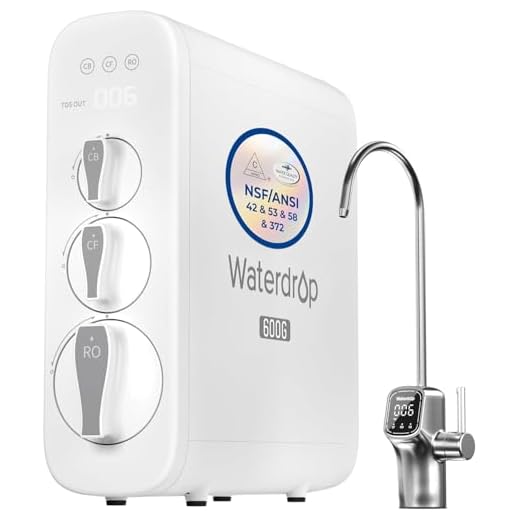




Health Impacts of Poor Water Quality
Access to clean water is essential for human health. Contaminated water sources can lead to a range of diseases and health issues. Bacteria, viruses, and parasites thrive in polluted environments, often causing gastrointestinal illnesses that can be severe or even fatal. Additionally, harmful chemicals in contaminated water can pose risks, leading to long-term health effects, including developmental problems in children and increased cancer risks for exposed populations.
Numerous studies highlight the direct correlation between poor water quality and adverse health outcomes. Inadequate sanitation practices contribute significantly to these issues, especially in vulnerable communities. For example, countries with insufficient water treatment infrastructure have reported higher incidences of cholera and typhoid fever. Understanding these health risks is critical for advocating better water management practices and improving public health initiatives.
Historical Epidemics Linked to Contaminated Water
Throughout history, numerous epidemics can be traced back to contaminated water sources. The cholera outbreaks of the 19th century stand as one of the most notable examples, particularly affecting urban areas with inadequate sanitation systems. Contaminated drinking water facilitated the rapid spread of this deadly disease, affecting thousands and leading to significant changes in public health policies and infrastructure.
Another critical instance occurred during the medieval period with the persistence of the Black Death, where bad water was believed to contribute to the plague’s devastating impact. Communities struggled to understand the connection between water quality and health, often attributing illness to more mystical causes. The recurring pattern of epidemics linked to unsanitary water helped catalyze advancements in public health measures and urban planning in subsequent centuries.
Water Filter Maintenance in Historical Context
The maintenance of water filtration systems has evolved significantly throughout history, reflecting advancements in technology and understanding of water quality. In ancient civilizations, such as those in Egypt and Mesopotamia, individuals utilized simple methods like sand and charcoal to improve water clarity and taste. These rudimentary filters required regular cleaning and replenishment of materials to remain effective, demonstrating an early awareness of the need for ongoing maintenance.
As societies progressed, so did the complexity of water filtration methods. In medieval Europe, residents employed more sophisticated techniques, including the use of cloth and stone filtration systems to purify drinking water. Documentation from that era highlights the care taken to clean and replace filtration materials periodically. Communities began recognizing that neglecting maintenance not only led to poor water quality but also increased the risk of waterborne diseases, indicating a growing understanding of the importance of clean water for health and well-being.
Practices Adopted Over the Centuries
Throughout history, various cultures have developed practical methods for maintaining water quality. In ancient Rome, aqueducts were meticulously cleaned and inspected to ensure the flow of fresh water remained uninterrupted. These structures dramatically improved public health by preventing the stagnation of water that could lead to contamination. In Japan, traditional methods of water purification involved using charcoal and sand, reflecting a deep understanding of the natural filtration process. Such practices demonstrate a long-standing commitment to ensuring access to clean water.
As societies evolved, so did the techniques employed for water maintenance. In the Middle Ages, people began utilizing cloth and other materials to filter out impurities from drinking water. The advent of chemical substances, such as chlorine, marked a significant shift in the approaches adopted in the 19th century. Water purification became standardized in urban areas, driven by the growing recognition of the link between clean water and public health. These evolving methodologies across various cultures reveal a continuous pursuit of effective solutions to ensure safe water for communities.
Cultural Perspectives on Clean Water
Throughout history, various cultures have imbued water with spiritual significance, often viewing it as a source of life and purity. In many societies, water is seen not just as a physical necessity but as a sacred element connected to rituals and beliefs. For instance, the indigenous peoples of North America often conducted ceremonies around rivers and lakes, honoring them as vital sources of sustenance and spiritual renewal. These practices reflect an understanding that clean water holds both practical and symbolic importance, intertwining daily survival with cultural identity.
In other parts of the world, such as in Hindu traditions in India, rivers like the Ganges are revered as holy entities. Devotees engage in acts of purification by bathing in sacred waters, believing in their ability to cleanse not only the body but also the spirit. Similarly, many African cultures regard specific bodies of water as sacred, incorporated into traditional rituals that emphasize respect and gratitude. These perspectives highlight a universal reverence for water, demonstrating how cultures develop unique relationships with clean water based on environmental, spiritual, and historical contexts.
Rituals and Beliefs Surrounding Water Purification
Throughout history, various cultures have placed immense value on the purity of water, often intertwining it with their spiritual beliefs. Many societies engage in rituals such as cleansing ceremonies, where specific prayers or chants are recited to invoke divine blessings for the water. In indigenous traditions, certain bodies of water are considered sacred, believed to possess healing properties. These practices reflect deep-rooted connections to the natural world and the belief that water can transcend physical utility, becoming a medium for spiritual sustenance.
In addition to ceremonial acts, the act of purification often incorporates symbolic gestures. For instance, some cultures perform rituals that involve filtering water through natural elements like sand or charcoal, which is believed to enhance its sacredness. The importance of maintaining clean water can also be observed through festivals dedicated to water deities, celebrating the life-giving and sustaining powers of this essential resource. These customs highlight how essential clean water is, not just for sustenance, but also as a conduit for cultural identity and community harmony.
FAQS
What are the health impacts of poor water quality?
Poor water quality can lead to a range of health issues, including gastrointestinal diseases, reproductive problems, and neurological disorders. Contaminated water is often linked to epidemics and can significantly affect overall public health.
What historical epidemics were linked to contaminated water?
Historical epidemics such as cholera and typhoid fever were primarily linked to contaminated water sources. These outbreaks often occurred in urban areas with inadequate sanitation and water treatment practices, resulting in widespread illness and death.
How has water filter maintenance evolved over the centuries?
Water filter maintenance has evolved significantly, from basic filtration methods using sand and charcoal in ancient times to modern, sophisticated systems that use advanced technologies. Historical practices often focused on regular cleaning and replacement of materials to ensure water purity.
What practices were adopted historically for maintaining water filters?
Historically, practices for maintaining water filters included regularly boiling water, using natural materials like sand and gravel for filtration, and employing communal systems where water was treated collectively. These methods aimed to reduce contamination and improve water quality.
How do cultural perspectives influence attitudes toward clean water?
Cultural perspectives play a significant role in shaping beliefs and rituals surrounding clean water. Different cultures have unique practices and beliefs about water purification, often viewing it as both a physical necessity and a spiritual or ritualistic process, highlighting its importance in their daily lives.
Related Links
Understanding the Importance of Routine Filter Maintenance
Why Regular Maintenance is Critical for Water Filter Performance
Roundup of Best Practices for Maintaining Different Water Filters
Top 10 Maintenance Tips for Your Water Filter System

